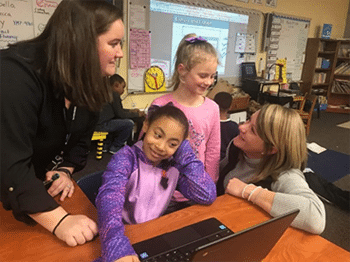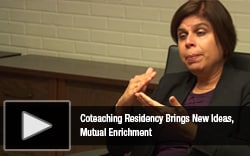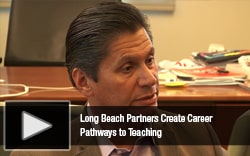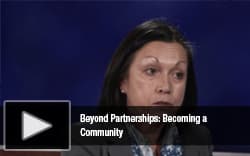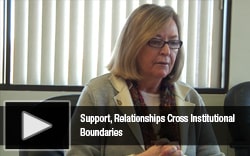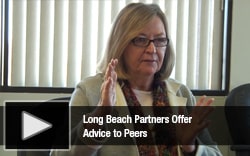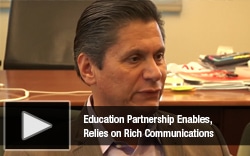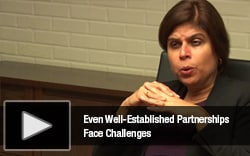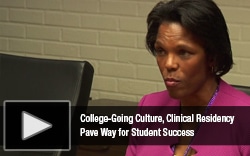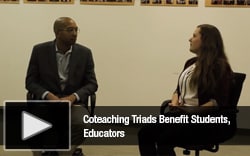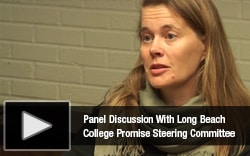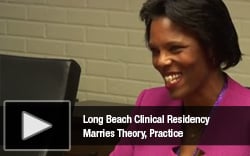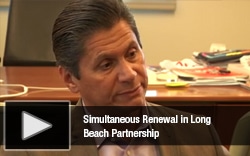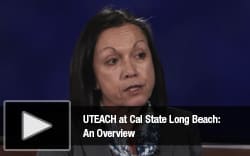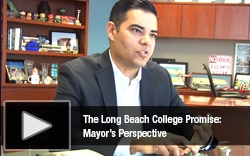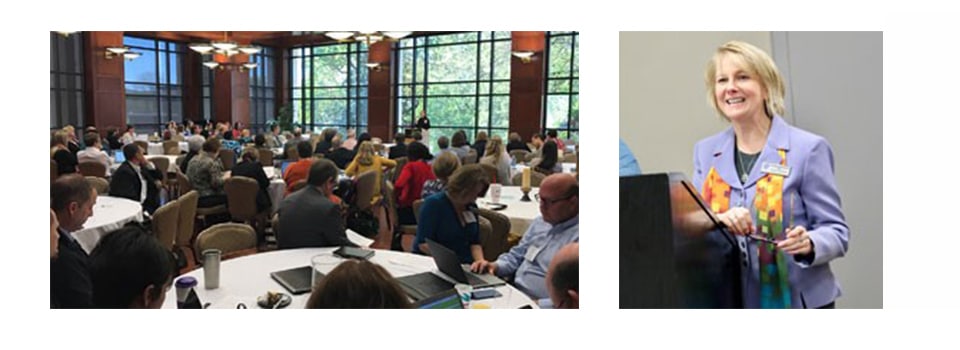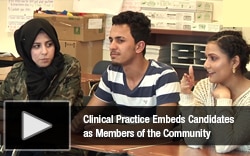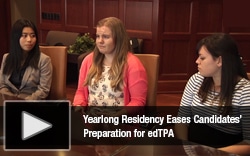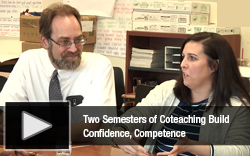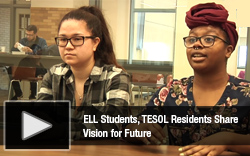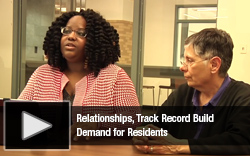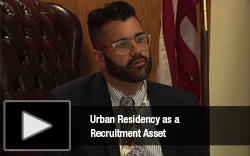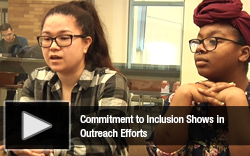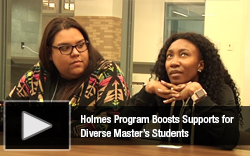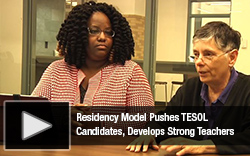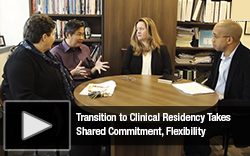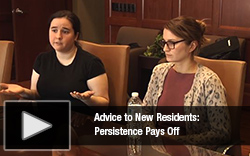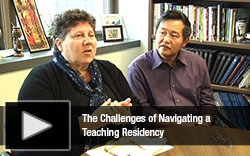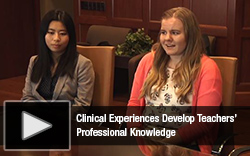03 Oct2018
By Jerrica Thurman

In celebration of National Principals Month this October, AACTE joins the National Association of Secondary School Principals (NASSP), National Association of Elementary School Principals (NAESP), and American Federation of School Administrators (AFSA) in recognizing the important work of principals in making schools great. National and state resolutions, formal awards and recognitions, and acknowledgments from U.S. senators and representatives and other top government officials mark this broad celebration of the principalship. It is an opportunity to say “thank you” to principals across the nation, and to reflect on the roles of school leaders and the importance of preparing them well.
02 Oct2018
By Jerrica Thurman

Southern New Hampshire University (SNHU) in Manchester launched its new clinical master’s degree program during the 2018-19 academic year. The program offers dual certification in elementary and special education or early childhood and early childhood special education. It is designed to prepare teacher candidates for certification and to ensure that new educators have the required skills, competencies, knowledge, and dispositions specifically needed to support the development and learning of students in elementary grades (K-8) and general special education (K-12).
“It’s an accelerated 15-month clinical program that enables teacher candidates to work clinically with students during 11 of those months,” said Mary Ford, Interim Dean in the School of Education at SNHU. “They are [working] in supervised clinical experiences learning the craft and skill of teaching as well as monitoring the learning progress of their K-12 students.”
05 Sep2018
By Cori Meredith Brown

Rowan University’s College of Education is the founding college on campus but that doesn’t stop it from continually innovating its practice and creating forward-thinking opportunities for teaching and learning. And so, this year, the oldest college on campus is offering an innovative new degree: the Bachelor of Arts in Inclusive Education.
The concept of inclusive education is simple, yet profound: teachers must be prepared to meet the needs of ALL the learners in their classroom, regardless of differences in race, language, culture, and physical ability.
14 Aug2018
By Thomas E. Hodges
CarolinaTIP Director Nicole Skeen, right, works with first-year teacher Karlee Baxter and students in Baxter’s classroom.
Teacher shortages are a critical concern across the United States, and the University of South Carolina is tackling the crisis head-on with an innovative response to teacher retention. While recruiting new teachers into the profession is vitally important, reducing the alarming rate at which novice teachers leave the profession must be a central focus in addressing the teacher shortage, as shared in a recent op-ed by University of South Carolina College of Education Dean Jon Pedersen.
“If you add the belief that teacher preparation and support should not end at graduation, a desire to gather data to inform programmatic improvement, and a teacher retention issue to new accreditation standards and a college leadership team determined to make a positive impact on the profession, beyond the walls of the university, you arrive at the impetus for the Carolina Teacher Induction Program (CarolinaTIP),” said Cindy Van Buren, assistant dean and one of the developers of the college’s induction program.
31 Jul2018
By Kristin McCabe
Four final videos are now available in the AACTE Research-to-Practice Spotlight Series focused on the district and community partnerships of the College of Education at California State University, Long Beach. (View these and others in the series on AACTE’s Video Wall.)
The videos capture interviews with faculty, administrators, teacher candidates, and other partners in the Long Beach College Promise and the UTEACH residency program.
24 Jul2018
By Kristin McCabe
In this week’s featured videos in the Research-to-Practice Spotlight Series, participants in the education partnerships of California State University, Long Beach, discuss the hurdles they’ve faced, supports they’ve implemented, and advice to others interested in starting a similar program.
Strong communications and trust lie at the heart of both the Long Beach College Promise and the UTEACH residency program, stemming from the well-developed relationships as well as enabling new collaborations to solve evolving problems.
17 Jul2018
By Kristin McCabe
The AACTE Research-to-Practice Spotlight Series continues this week with its focus on the Urban Teaching Academy (UTEACH) residency program of California State University, Long Beach. The latest video interviews feature members of the Long Beach College Promise Steering Committee and several participants from the university, Long Beach City College, and the Long Beach Unified School District.
17 Jul2018
By Vicky Zygouris-Coe

In the College of Community Innovation and Education at the University of Central Florida (UCF), we view partnerships as one of our core values. The UCF Literacy Symposium, an annual conference with a mission to be at the forefront of literacy learning, is one example of a strategic partnership between our college and in-service educators. The event creates a space for bringing together teacher and PK-20 educators to connect, share, advocate for, and learn about literacy.
This year, we celebrated our 20th annual event with the help of 768 educators and other stakeholders who share a common interest in literacy instruction and learning. The symposium is well known across the state of Florida, and every year we attract educators from various Florida universities and school districts as well as from other states. Participants at the 2018 symposium included PK-20 teacher educators, in-service and preservice educators (including school administrators, specialized literacy professionals, school counselors, and other support staff), local superintendents and school district personnel, state Department of Education officials, and others (e.g., legislators, publishers, and representatives from research and educational centers).
10 Jul2018
By Kristin McCabe
The AACTE Research-to-Practice Spotlight Series continues this summer with a new feature on California State University, Long Beach. We’re excited to introduce this member institution’s Urban Teaching Academy (UTEACH) residency program, which operates in the unique context of the massive public education partnership known as the Long Beach College Promise.
09 Jul2018
By Marcy Keifer Kennedy and Chris Kennedy
This event is cancelled until further notice.

“I don’t know where to start,” “it’s too hard,” “it’s too expensive,” or “it takes too much time” are among some of the comments that are often heard in conversations around the country as the push for more clinically rich teacher preparation is discussed. While it certainly can be challenging to reimagine longstanding practices, the shift to strong clinical models has become something of a national imperative for high-quality teacher preparation.
22 Jun2018
By Kristin McCabe
Members of the Arkansas Association of Colleges for Teacher Education participate in a recent annual conference; at right, current chapter President Victoria Groves-Scott of the University of Central Arkansas addresses members.
The 47 state chapters of AACTE employ a wide variety of membership models, activity calendars, and strategic partnerships to meet the priorities of their members. While all chapters are based on the fundamental value of interinstitutional collaboration, these coalitions are not just about members talking to themselves or circling the wagons. They also provide an effective launching point for their individual and collective members to connect with external groups that lend important new perspectives and advantages.
The Arkansas Association of Colleges for Teacher Education (ArACTE) offers an example of how connections forged outside its membership boost its capacity to focus on advocacy priorities as a group–and on common programmatic concerns at the campus level.
19 Jun2018
By Kristin McCabe
Four new videos are available this week in AACTE’s Research-to-Practice Spotlight Series highlighting the urban residencies of the State University of New York (SUNY) Oswego School of Education. In these final videos of the series, educators discuss the significance of getting to know students well and how the yearlong clinical experience helps TESOL candidates prepare for edTPA–and beyond.
Participants in the clinical partnerships of the SUNY Oswego School of Education say one of the significant benefits of a yearlong residency is that teachers get to know their students well and engage deeply in their community.
12 Jun2018
By Kristin McCabe
Four new videos are available this week in AACTE’s Research-to-Practice Spotlight Series highlighting the urban residencies of the State University of New York (SUNY) Oswego School of Education. In the latest videos, educators discuss why demand for Oswego residents is growing, how the clinical partnerships are boosting teacher recruitment, and myriad outreach efforts supporting diversity and inclusion–including the AACTE Holmes Program.
The growing clinical partnerships and residency programs of the SUNY Oswego School of Education are generating a compelling track record that places both student teachers and graduates in high demand among local districts. The programs are also boosting recruitment and support of more culturally and linguistically diverse educators, thanks to a variety of efforts on campus and beyond.
05 Jun2018
By Kristin McCabe
Five new videos are available this week in AACTE’s Research-to-Practice Spotlight Series highlighting the urban residencies of the State University of New York (SUNY) Oswego School of Education. In the latest videos, educators discuss the professional growth they experience through their partnership work, the primary challenges they’ve faced, and advice they’d offer others looking to transition to a clinical residency.
Teachers of English as a new language (ENL) at Grant Middle School in Syracuse, New York, say they are fortunate to host preservice teachers from the SUNY Oswego TESOL program, who spend their full senior year working with them and other city schools in a coteaching residency.
30 May2018
By Zachary VanHouten
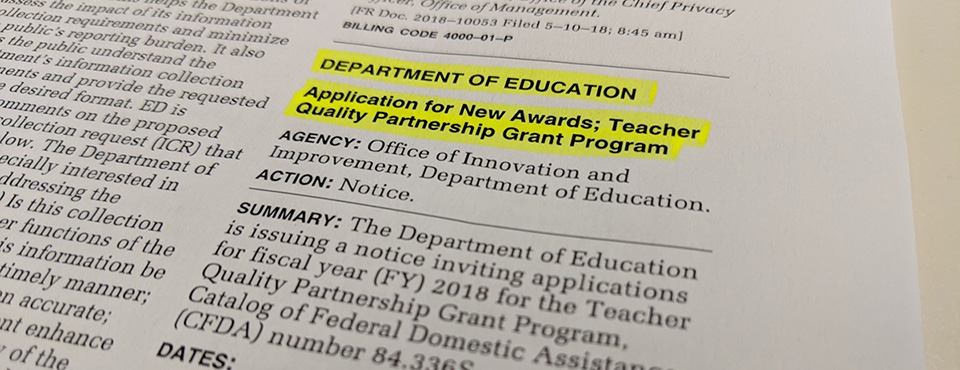
The U.S. Department of Education has formally published a notice inviting applications for a new Teacher Quality Partnership (TQP) grant cycle. Interested applicants should notify the Department by June 11 of their intent to apply, with completed applications due 4:30 p.m. EDT on Tuesday, June 26.
The TQP grant program, authorized in Title II of the Higher Education Act, is the only federal initiative designed to strengthen and reform educator preparation at institutions of higher education. AACTE has long advocated for this program, which funds partnerships between institutions of higher education and high-need schools and districts to develop master’s-level residency programs or to reform undergraduate preservice preparation programs.










